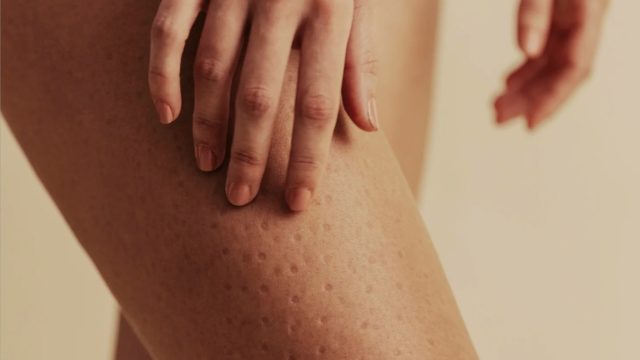rē•framing Menopause as a Hormone Deficiency
Understanding the difference between hormone imbalance and hormone loss

When we think about hormones and our bodies, we commonly think about hormonal imbalances as a blanket term. But OB/GYN Dr. Barbara Taylor, who also goes by the moniker Menopause Taylor, is the first to point out that there needs to be a distinction between “hormone imbalances” and “hormone loss.”
“Hormones rise and fall all the time. That’s precisely how they exert their effects. So, all hormones are supposed to span a range of normal values,” Taylor tells rē•spin. “What’s completely abnormal is the complete loss of a hormone. That’s what we call a hormone deficiency.”
We see these deficiencies manifest through various conditions and diseases, such as diabetes, which is an insulin-deficiency state, and hypothyroidism, where our thyroid fails to produce thyroid hormone and our metabolism slows down. Left untreated, these deficiencies can lead to serious symptoms resulting in death. “With estrogen deficiency, you have 22 signs and symptoms. If you fail to compensate for the absence of estrogen, you will eventually have a high risk of the deadly diseases that are associated with menopause.” But that doesn’t have to be the case. You should be thriving in your midlife.
Taylor continues: “Simply put, you cannot live if your body is deficient in any substance it needs in order to function normally.”
Understanding the connection between hormones and health
For both men and women, an innate connection exists between our reproductive systems and our mental, physical, and emotional well-being. As Taylor notes, our bodies talk to us, but most people just aren’t used to listening to them. Doing so can make all the difference in how we age. It’s important to “rē-spin” what it means to live and thrive during menopause.
Men’s testosterone levels will decrease throughout their adult lives, but they will never completely run out of testosterone. The same is not true for women, though. Throughout her reproductive life — a period that typically lasts between 35 to 40 years — a woman will produce estrogen and progesterone. It’s during menopause and postmenopause when a woman’s ovarian function ceases that her reproduction span comes to an end, and her hormone deficiencies kick in.
“This loss of female hormones happens rapidly, over just a few months or years. And rapid hormonal changes are always quite drastic,” says Taylor, who refers to estrogen as a woman’s “fountain of youth.” The result: “When we lose our estrogen, we start aging rapidly on the outside and the inside.”
Symptoms include difficulty sleeping, fatigue, dry skin, wrinkles, and sagging skin, stiff and painful joints, irritable and possibly depressed moods, hot flashes, vaginal dryness, incontinence, weight gain, and decreased libido. An estrogen deficiency brought on by menopause can cause Alzheimer’s disease through brain shrinkage, heart attack due to plaque build-up in the heart arteries, and osteoporosis.
“Estro-gone”
The term “menopause” is a misnomer, says Taylor. “It’s certainly not just a pause. And it’s certainly not just about the cessation of menstrual cycles (which is the derivation of the root “meno”). I think we should call it ‘estro-gone.’ Our estrogen is gone, gone, gone.” It means living the entire rest of your life with a hormone deficiency. “For the vast majority of women, it will constitute one-third to one-half of their lives,” she says.
And yet, much of the menopausal experience is written off as “natural,” or swept under the rug entirely, still treated as a taboo topic to this day. But just because something is common does not mean it’s natural.
“There’s nothing whatsoever ‘natural’ about outliving your ovaries and running out of estrogen,” she says. “There is nothing subtle about estrogen loss at menopause. So, why is there silence on the topic? Women are suffering. And we need to speak up in order to help them.”
Tools for managing hormone deficiencies
Hormonal changes will happen to men and women, no matter what. But instead of writing off each symptom, there is an opportunity to listen to our bodies and no longer ignore what we feel inside. As humans age, our bodies can become less forgiving, Taylor explains. “Ignoring what your aging body is telling you is like fighting Mother Nature.”
“If your knees say, ‘I don’t like running anymore,’ but you continue to run anyway, you’ll run into big problems down the line,” she says. “If you stay up all night like you did in your twenties, your body is going to put up a fight. If you don’t give your body time to get over jet lag, you’ll endure huge setbacks.”
When we have hormone deficiencies, such as menopause, a bigger fight is ahead. No one route is best for every woman, and no one solution will be the ultimate fix. Taylor says every option has benefits and risks — the true success to managing a hormonal issue is being realistic about what each approach can and can’t accomplish and accepting the trade-offs that come with each.
Several categories of management range from diet and exercise to lifestyle changes, hormone replacement, and non-hormonal medications. Additional techniques include acupuncture, hypnosis, vitamin and mineral supplements, and herbs.
“Hormones travel all over your body, exerting their effects in many different organs and in many different ways. All aspects of your life and body will feel the effect of the hormone that’s ‘off.’ So, every aspect of your life can contribute in some way to improving the problem.”



